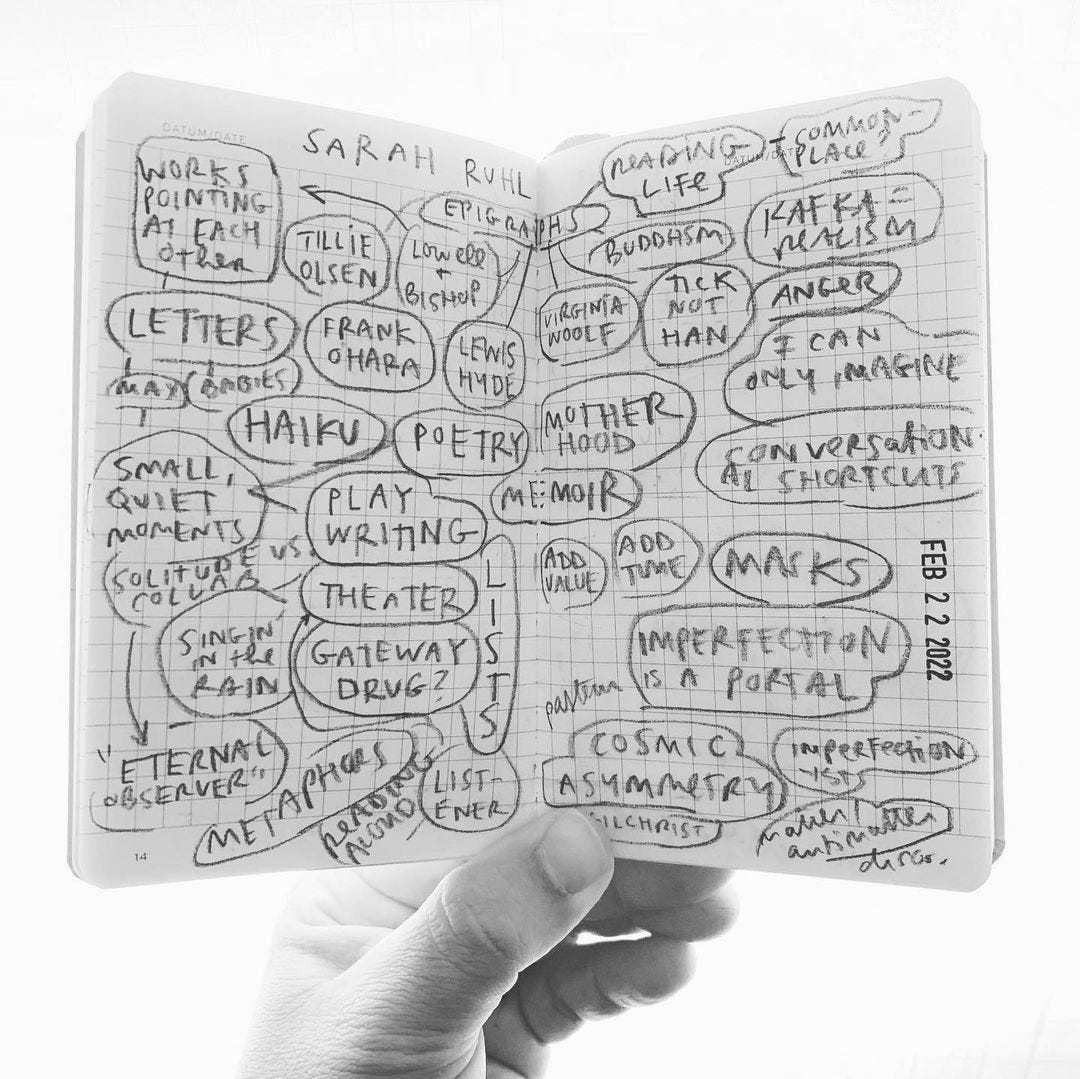How I prepare for an interview
Reading, map-making, and my plan for better listening...
Hey y’all,
Above is a page of notes doodled in my notebook while re-reading Sarah Ruhl’s Smile and prepping for our interview. This is my favorite way to prep: making a mind map of subjects and ideas, clustering them together, and seeing what emerges.
Here’s a page from re-reading 100 Essays I Don’t Have Time To Write:
When I say “re-read,” I don’t actually mean reading front-to-back: more like skimming through the book and looking for the parts I’ve underlined. (With pencil! This is very important: I like to read using a dark, soft-leaded pencil. No pen! No highlighter!) This skimming for “hot spots” in the text is aided greatly by my habit of dog-earing pages I want to come back to later.
This is similar to how Terri Gross says she does her research:
I’d circle every thing on each page that I wanted to remember. Dog-ear the page that I had circled, and then when I was done going through the book that way, then I’d go back to every dog-eared page and type notes on everything that I’d circled. Those notes would serve as my memory bank, so that the next morning when I start to write my questions, I have something to jog my memory of everything I’ve read.
Once I have my maps made out, I sometimes refine them further with a new map, but then I write out a list of questions.
A list of good questions always seemed to me like the thing you were shooting for with your interview prep, but then I came upon this thread of interview tips from podcaster and philosophy writer Nigel Warburton, author of A Little History of Philosophy:

Errol Morris also doesn’t believe in having a list of questions.
“In fact, I think it’s a real, real bad idea to have a list of questions,” Morris says. “If you have a list of questions, it means you’re not engaged in listening to what the person says.”
If you read enough interviews with great interviewers, this subject comes up over and over again: Sticking too closely to your clever list of questions usually means you’re not really listening. Because while the person is talking, you’re too busy thinking about the next question you want to ask them.
“If you don’t listen, you’re not a good interviewer,” Larry King says. “I hate interviewers who come with a long list of prepared questions. Uh, because they’re going to depend on going from the fourth question to the fifth question without listening to the answer of the fourth question.”
“The question takes longer than the answer, and the people show off.”
I confess that I am guilty of this: When I get the chance to finally talk to these great writers, I have ideas I want to run by them, as was the case with Sarah. (Hence the “I have so many questions I want to ask you!” and the babbling about aphantasia and cosmic asymmetry.) Still, I enjoyed how it turned out:
Keep reading with a 7-day free trial
Subscribe to Austin Kleon to keep reading this post and get 7 days of free access to the full post archives.




